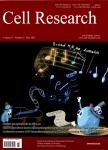版权所有:内蒙古大学图书馆 技术提供:维普资讯• 智图
内蒙古自治区呼和浩特市赛罕区大学西街235号 邮编: 010021

作者机构:Tissue Engineering and Regenerative Medicine Lab Beijing Institute of Health Service and Transfusion Medicine 100850 Beijing China Army Tuberculosis Prevention and Control Key Laboratory Beijing Key Laboratory of New Techniques of Tuberculosis Diagnosis and Treatment Institute of Tuberculosis Research The 8th Medical Center of Chinese PLA General Hospital 100091 Beijing China Tissue Engineering and Regenerative Medicine Lab Beijing Institute of Health Service and Transfusion Medicine 100850 Beijing China Department of Nursing Hebei Medical University 050017 Shijiazhuang China Tissue Engineering and Regenerative Medicine Lab Beijing Institute of Health Service and Transfusion Medicine 100850 Beijing China Tissue Engineering and Regenerative Medicine Lab Beijing Institute of Health Service and Transfusion Medicine 100850 Beijing China Hepatal-Biliary-Pancreatic Center Translational Research Center Beijing Tsinghua Chang Gung Hospital 102218 Beijing China Department of Hepatobiliary Surgery Sun Yat-sen Memorial Hospital Sun Yat-sen University 510289 Guangzhou China Department of Hepatobiliary Surgery Nanfang Hospital Southern Medical University 510515 Guangzhou China Department of Nursing Hebei Medical University 050017 Shijiazhuang China
出 版 物:《细胞研究(英文版)》 (Cell Research)
年 卷 期:2019年第29卷第12期
页 面:1009-1026页
核心收录:
学科分类:0710[理学-生物学] 07[理学] 071009[理学-细胞生物学] 09[农学] 0901[农学-作物学] 090102[农学-作物遗传育种]
基 金:We thank Drs Zhigui Zeng,and Zhijun Zhu for their help with clinical samples Drs Lola Reid and Xin Wang for critical review.Dr Xin Chang for TEM experiments Mr Zhimin Li and Chuanwen Wang for bioinformatics analysis.This work was supported by the National Natural Science Foundations of China(81730052) the Interdisciplinary Cooperation Project of Beijing Nova Program(Z1811100006218127) the National Major Scientific and Technological Special Project for "Significant New Drugs Development"(2018ZX09711003-001-002) the National Key Research and Development Program of China(2016YFC1101305) the Science and Technology Planning Project of Guangdong China(2015A050502023) the Guangdong Province Science and Technology Program(2018KJYZ021) Science and Technology Program of Guangzhou,China(STPG,2016201604030054)
主 题:alcoholic liver disease oxidative stress liver diseases fetal liver
摘 要:We report the generation of human ESC-derived,expandable hepatic organoids (hEHOs) using our newly established method with wholly defined (serum-free,feeder free) *** hEHOs stably maintain phenotypic features of bipotential liver stem/progenitor cells that can differentiate into functional hepatocytes or *** hEHOs can expand for 20 passages enabling large scale expansion to cell numbers requisite for industry or clinical *** cells from hEHOs display remarkable repopulation capacity in injured livers of FRG mice following transplantation,and they differentiate in vivo into mature *** implanted into the epididymal fat pads of immune-deficient mice,they do not generate non-hepatic lineages and have no tendency to form *** further develop a derivative model by incorporating human fetal liver mesenchymal cells (hFLMCs) into the hEHOs,referred to as hFLMC/hEHO,which can model alcoholic liver disease-associated pathophysiologic changes,including oxidative stress generation,steatosis,inflammatory mediators release and fibrosis,under ethanol *** work demonstrates that the hEHOs have considerable potential to be a novel,ex vivo pathophysiological model for studying alcoholic liver disease as well as a promising cellular source for treating human liver diseases.